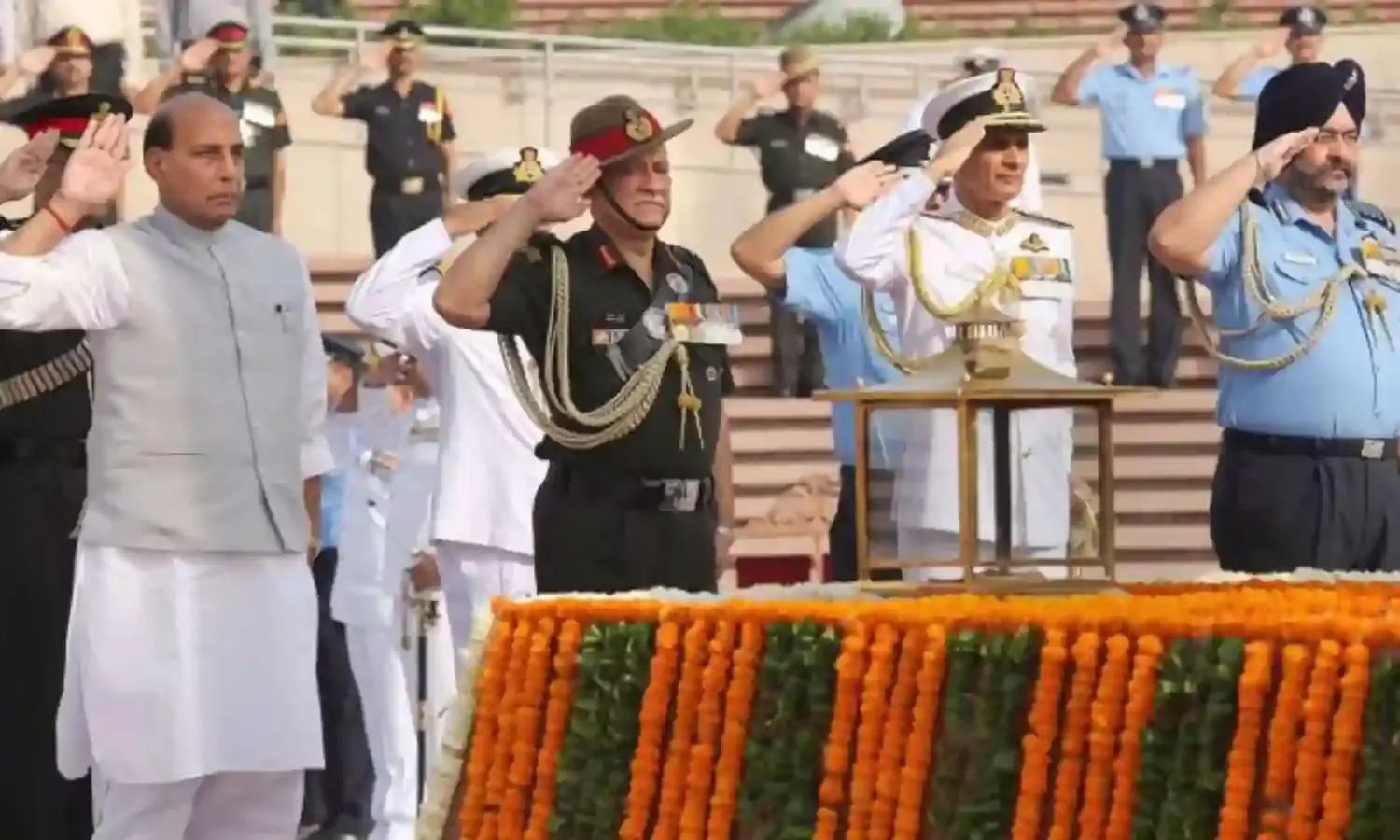Politics and the Military
Civilian and political control are processes ingrained over a period of time

History bears witness that a strong, sovereign and independent state has always been backed by a strong army - in today’s context, the military. Yet paradoxically, the military is a threat in being for the ruling elite and polity; the spectre of the ‘man on horseback’ acquiring his own political momentum.
From this follows the requirement and doctrine of positive civilian control over the military.
England, the mother of modern democracy, imbibed this truism when on April 20, 1653 Oliver Cromwell marched into Parliament and took over as ‘Lord Protector’ of a united Commonwealth of England, Scotland and Ireland, ruling for 11 years through a parliament of generals.
The experiment failed and the lesson was learnt. By now all modern democracies have built safeguards into their constitutions and institutions to ensure civilian control of their militaries.
Civilian control implies the institutional subordination of a competent professional military to the elected political executive, for the employment of the military as an instrument of national power to further national interests.
Distinct and dangerous from civilian control is political control.
It attempts to align the military to the ideological orientation of the party running the government, in order to achieve political objectives.
A very proud, professional and competent German military fell victim to such control in the period preceding World War II, with ruinous consequences for Germany and the world at large.
Civilian and political control are not a one-time act, they are processes ingrained over a period of time.
In nominating the present Army Chief, the political leadership appeared to have exercised such civilian control, which is to be welcomed and not disputed, the stated reason for the nomination being competence and suitability.
Such control may be expected in the appointment of the Chief of Defence Staff (CDS) and Service Chiefs in the near future.
Chiefs appointed by superseding others on the grounds of suitability or competence are under no obligation to align themselves to the political ideology of the party in power. Any hint of doing so would reinforce perceptions that the appointment was for reasons other than competence.
Perceptions are important, more so in today’s instant media age, which calls for circumspection in words and actions, as also demonstrated competence by the appointee.
However, recent events cannot but create apprehensions in the minds of professional military men, and civil society at large, of the dangerous drift from civilian towards political control.
Much political mileage was sought to be derived from the cross-LOC action following the Uri attack, the cross-border action into Myanmar, and the response after the Pulwama incident.
The military significance of such actions, and their effect on the adversary, are well understood by the military leadership and need no public amplification. The message, if any, is also well understood by the adversary’s military.
Much as the ownership and credit for these actions were played up for political mileage, the military leadership was not duty bound to add to the discourse.
Similarly, after the recent decision of Parliament and actions in Jammu and Kashmir since August 5, the political leadership also announced the agenda of reclaiming Pakistan Occupied Kashmir.
When and how this is to be done is a matter of deliberate policy formulation and preparation, best left for the future.
However, sober professional military opinion suggests that the military feasibility, practicality and capability at the present juncture, to say the least, does not allow any such undertaking.
For the Army Chief to publicly declare readiness for such an undertaking, awaiting only the government’s nod, adds to the creeping perception of political control over the military.
The prevailing view and sentiment amongst the middle and lower rungs of the officer cadre and the ranks is that the senior leadership has been unable or unwilling to address their concerns and safeguard service interests.
It is seen as not doing enough about organisational structures, infrastructure, critical personnel equipment, pay commission anomalies, One Rank One Pension, Non Functional Upgrade and the degrading of rank equivalence and status.
Statements from the military leadership ostensibly aligned with the government of the day, and against the sentiment of the serving and veteran community, haven’t helped matters.
This dent in mutual confidence will only grow if the perception is reinforced that the leadership is politically compromised.
Service chiefs embody the pride, prestige, hopes and aspirations of the service. Military leadership is built upon credibility and mutual trust. Any perception amongst the rank and file that the senior leadership has secured its appointment by unsoldierly means, and is politically aligned, cannot but destroy faith in the leadership, with disastrous consequences.
Retired senior officers’ aligning themselves with political parties and making a beeline for electoral politics immediately after shedding their uniform is an ominous portent.
We already have a ‘committed’ bureaucracy and police, fully under political control, at the centre and in the states. The flurry of postings and transfers after every election needs no elaboration.
To ‘commit’ the military similarly would be disastrous. The military is a national institution. The nation, and more importantly the military leadership itself, must act to preserve it.
Lt Gen N.S.Brar (Retd) is former Deputy Chief, Integrated Defence Staff and Member, Armed Forces Tribunal.



